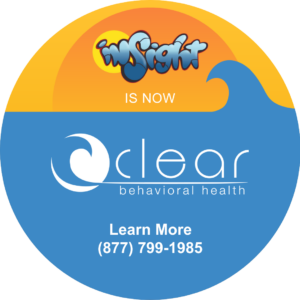As more people become curious about getting sober and contemplate giving up alcohol or drugs, “California sober” is a term that has gotten popular among young people looking for a compromise in substance use. The slang term is often used by casual drinkers or those who participate in recreational drug use as a way to dial back their consumption.
It’s obvious (but still must be said) that no one is truly sober if they are still using drugs or alcohol in any capacity. As an approach to substance abuse, Cali sober allows individuals to cut out harmful substances for their own health and use less dangerous drugs like cannabis to help them avoid harder drugs.
What is California Sober?
California sober, or “Cali sober,” as coined by pop singer Demi Lovato, is a slang term used to describe a way of life that involves swapping out dangerous drugs for safer alternatives, like marijuana or alcohol in moderation, rather than staying totally sober. California sober is a loose term that can be interpreted differently by everyone.
Some people also include psychedelics like magic mushrooms in their personal definition of California sober, although those types of drugs are not legal in the United States.
Those who struggle with addiction may choose to approach sobriety from the California sober approach — they feel it’s a more manageable, softer way to recover from opioid use disorder or alcohol use than total abstinence.
This idea of semi-sobriety is hard to swallow for experts in the field when most research points to total abstinence and sobriety being the only way to achieve long-term recovery and avoid relapse.
Benefits of a California Sober Lifestyle
Cali sober does have some benefits for the right individual in the right headspace with adequate coping skills and a support system in their life who can help.
1. For some, Cali sober is a harm-reduction approach to addiction
Harm reduction approaches to addiction can help prevent overdose and drug-related deaths by helping people discover healthy steps forward from their addiction. In the California sober lifestyle, harm reduction means using marijuana or alcohol as a safer alternative to certain drugs, like cocaine, heroin, or opioids.
By learning to control triggers on a daily basis and using caution when consuming alcohol or marijuana in moderate amounts, a person’s safety is prioritized in order to prevent a relapse.
2. Cannabis may not impact recovery from an addiction
Many studies have shown that using cannabis in recovery does not impact or increase the risk of relapse. Individuals do have side effects to deal with, like lower cognitive functioning and a decrease in motivation, but there was no known impact or risk of relapsing.
Drawbacks of a California Sober Lifestyle
The California sober lifestyle can be a slippery slope if you live with a substance use disorder, whether that be opioids, heroin, or methamphetamine. Particularly for those new to recovery or who have not yet developed the proper coping skills, avoiding triggers that can lead to relapse is very challenging. Here are the drawbacks of using the California sober lifestyle as a part of your recovery.
1. California sober can interfere with long-term recovery
For those with alcohol or opioid addiction, abstinence is commonly associated with a lowered risk of relapse. By its definition, California sober means you still drink alcohol or use cannabis in moderation as you recover from an addiction to drugs like opioids. Research shows that long-term recovery from drugs and alcohol is achieved by abstaining entirely, not swapping one vice for another.
2. Marijuana has its own negative consequences for recovery
The effects of marijuana can be particularly challenging for a person who is new to recovery. Regular marijuana use can cause:
- Short-term memory and concentration problems
- Higher risk of psychotic disorders
- Impairment of cognitive functioning
- Short and long-term irritability, depression, anxiety
- Recreating addiction issues as you build a tolerance to the drug
While marijuana use can benefit those struggling with physical pain and illness, it should not be used to help someone in recovery from drug or alcohol use. Marijuana use is common in the California sober lifestyle because it’s considered a recreational drug in many states, and most believe it does not have any long-term side effects. However, for a person in addiction recovery, it can have detrimental effects on their mental health and well-being and can lead to other issues.
3. Alcohol and marijuana use may lead to the use of other substances
Many individuals struggle to use one substance casually or in moderation. Alcohol consumption and the consistent use of any drug, including cannabis, can lead to harder drugs. You may think using marijuana in moderation is acceptable for recovery because it’s better than using cocaine, methamphetamine, or heroin.
While this may be true, drinking or using drugs in any capacity, particularly in social settings, may put you in a situation with others who are doing hard drugs. This can be a significant trigger for those in recovery.
Heavy use of marijuana lowers dopamine levels in the brain, which can lead to all the common side effects of cannabis we’ve come to recognize. Just like other drugs, heavy usage (particularly in people under 18) can lead to an increased risk of dependence, withdrawal symptoms, and using multiple drugs at once.
4. Using marijuana as a swap for alcohol may lead you back to drinking
The chances are much higher that if you stop drinking and start using cannabis instead, you will eventually return to drinking alcohol. Whether you surround yourself with people who drink and do drugs socially or you’ve used marijuana as a gateway drug in the past, it’s highly likely that you’ll start drinking to the same capacity that you were.
Is Semi-Sobriety Effective?
Semi-sobriety may be a highly effective approach for individuals who have healthy relationships with alcohol and drugs like marijuana. For these people, cutting back on how much alcohol they drink during the week or smoking a vape pen instead of drinking wine at night may be healthy swaps that improve their quality of life.
For people who have overcome addiction in the past or are currently in recovery from opioid or drug addiction, semi-sobriety can be a dangerous path to walk down with serious consequences. For most people in recovery, moderation of any substance is not an option. More often than not, it will lead to an eventual relapse.
Is Complete Sobriety the Best Approach to Addiction?
Addiction of any kind is personal and neurophysiological. This means that it’s not so much about the substance itself but the addicted person’s biology, genetics, and psychology. Everyone’s struggle is as unique as their genetic makeup, so your best path forward can’t be generalized.
Many studies show that continued drug or alcohol use that leads to addiction is often caused by underlying mental health issues that individuals struggle to deal with on their own. Addiction can stem from personal struggles, relationship problems, living with depression or anxiety, and much more.
While California sober has been a well-known term in the addiction community, Demi Lovato reignited buzz and conversation around this important topic after her near-fatal opioid overdose in 2018. As she described, being Cali sober is not the right path forward for many individuals in recovery.
For those with serious addiction problems, the best way to stay sober long-term from drugs and alcohol is simple — you stay sober. Not half sober, semi-sober, or kinda-sorta-sober. Abstaining from alcohol and drugs is the best approach to the treatment of addiction and substance use disorders.
Find Your Best Step Forward from Addiction with Clear Behavioral Health.
For a person who does not struggle with addiction, California sober can be an effective way to reduce alcohol consumption and make healthier lifestyle choices. For those with mental health conditions including addiction, California sober is not a black-and-white choice. The gray area is where any substance use can take hold, making relapse much riskier and more plausible.
If you are in recovery from addiction, thinking about getting sober, or concerned about a family member or friend, the team of mental health experts at Clear Behavioral Health can help. We specialize in addiction treatment modalities that are customized to the path you are walking down. Our approach is individualized, holistic, and evidence-based to give our clients the best possible chance at long-term recovery. Contact us today for more information.

